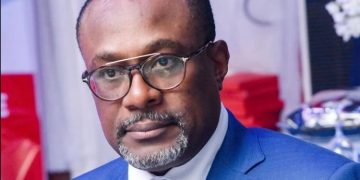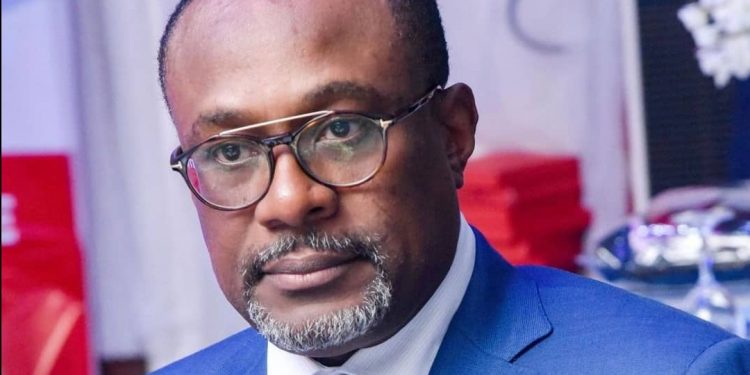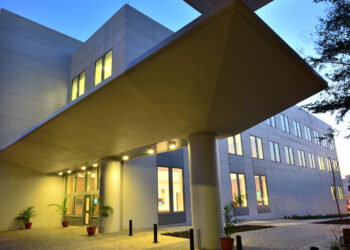By John Ikani
Nigeria is the 10th largest oil producer in the world and the largest in Africa. Yet, in recent years investment and growth of the nation’s oil and gas sector has been stunted due to the long-delayed industry legislation that was only signed into law by President Muhammadu Buhari last month.
Nigeria also has the ignominious reputation of being the sole oil major producer in the world that imports refined Petroleum products and continues to miss the deadline to end gas flaring in the oil-rich Niger Delta region. What is worse, is Nigeria’s reputation for oil facility vandalism and oil theft which have reached alarming proportions and are impacted negatively on the country’s ability to meet its OPEC quotas and grow foreign exchange earnings.
The result is international oil companies such as Shell have been forced to dispose of their onshore and shallow water assets and concentrate instead on their deepwater operations off the Nigerian coast.
Engr Simbi Wabote, the Executive Secretary of the Nigerian Content Development and Monitoring Board (NCDMB) in this interview with Arise TV, assesses the parallel state of the country’s oil and gas sector, the Petroleum Industry Act (PIA), and how these are combining to impact local content development.
Read excerpts from the interview monitored by Heritage Times below:
Let’s take off from the Petroleum Industry Act which is supposed to help deepen the oil and gas sector in Nigeria. In what ways would that particular piece of legislation impact your core mandate in terms of local content development?
I think that’s a very important question to ask at this point. Local content thrives only when there are activities in the oil and gas sector. If there are no activities, there is no local content and like I use to put it, if there is no project, there is no local content. For quite a while now, the industry has been slow in terms of Final Investment Decisions (FID) on major projects. The last one we took perhaps before now was on Gina which happened eight years ago when we took FID on Gina. Since then, the reason why Industry has refused to take FID on major projects has been the uncertainty associated with Petroleum Industry Bill (PIB) and that has lingered for a very long time. As far as I can remember, spending about 25 years in Shell, I think half of the period I spent in Shell there were discussions around the PIB. But eventually, that uncertainty was put aside a couple of months ago when the National Assembly passed the PIB now PIA and was signed into law by President Muhammadu Buhari. So all those excuses as to the uncertainties created by the PIB have been set aside and the expectation is that a lot of projects and activities will come on board. And if those happen, of course, the maxim that no project, no local content will then turn to more projects, more local content, and more activities in the oil and gas industry.
You’re celebrating your 5th year this month as Executive Secretary of the NCDMB. Can you take us to what you’ve managed to achieve in those 5 years with regards to local content. Have you managed to hit the target of 70% local content. Where are we now?
If you don’t limit me I hope we have enough time for me to reel out all that has been achieved so far but I will try my best to keep it short and simple. I think I came on board sometime in 2016 as the Executive Secretary of the NCDMB. The first thing I set out to do was to decide where I want to be and I think that is the way to go for any organization that anybody is leading to say where do I want to be in the next four years that I would serve and if I have the opportunity to serve for another four years where would I take the board to. So the first thing I did was to set up a 10-year strategic road map. Because I want to know the end game of where I want to be within 10 years. So we started by doing that. We engaged KPMG set about six months with them, looked at the act the way it is. Looked at what was achieved in the past and told ourselves we want to be at 70% local content attainment in the year 2027. So that set the benchmark. An through that, you begin to walk towards that goal with various strategic Pillars that we set aside, capacity building, industrialization, in-country capacity, helping local contractors move forward in terms of funding. We set up all those five pillars, we set up enablers to support those Pillars and set out short medium and long-term strategies on how we are going to achieve that.
I can tell you with all confidence we’ve been on that trajectory and we are moving forward. For instance, in order to create enabling environment for our staff to deliver on what they had to do, we had to immediately complete our 17 storey building in Bayelsa State, currently the tallest building in the South-South and South8East Region of the Niger Delta. Within that storey building, we have a 1000 seater auditorium which is perhaps the best auditorium you can find in Nigeria in terms of the quality, in terms of what we provided. There is also a four-storey car park building that we completed. We also started rolling in our industrial park scheme. Some years ago when I visited China, I tried to study how the industrial revolution caught up with them. I discovered that they did set up massive industrial parks where they incubated manufacturing because the only way you can change the game, create jobs, retain wealth is through manufacturing locally.
So we started our industrial park scheme, two of them by next year will be commissioned, one in Cross River State and the other in Bayelsa. We are also developing an industrial park in Ondo State, in Akwa Ibom State and also in Delta state in order that we start to incubate manufacturing because you can’t grow local content if you don’t do it locally. You have to manufacture things locally. So that is very much on track. In terms of capacity building, we’ve recorded over 1 million man-hours in training Nigerians within the oil and gas sector. In terms of opening up businesses during the heat of the pandemic we worked with NLNG to ensure that the train 7 project FID was taken by the that in itself will bring about $10 billion direct investment into the country. When you look at some of the things we have done in terms of ICT centers, we decided that the only way you can help students to become very savvy in terms of technology is to introduce them to ICT we have established more than 50 ICT centers in various secondary schools.
By the way, in a sustainable manner, we also got into technical education. I carried out research sometime, a study of technical colleges and institutions established around the country. I took three states as examples. I discovered that about 2,000 of them weren’t functional. People just say skills acquisition they want to build technical centers, today we’ve been working with institutions that have technical centers in order to develop technical colleges. We’ve done one in Akwa Ibom State we also doing one in Adamawa. In terms of investments, we took opportunity at government pronouncement in order to change the game and narrative in all discussions. We got involved in modular refinery it was a government pronouncement. The first establishment we ventured into it. We took about 30 percent equity in what has made modular refineries to catalyze it. Today it is producing in Imo state. We have about three other modular refineries that we have taken interest in. Then when you talk about the Gas Sector, government pronouncement how do we utilize our abundant gas in the country. We then got into equity participation in most companies about six of them, invested in order to catalyze the utilisation of our gas resources. Today in about 10 states of the Federation you have our LPG penetration programme going on particularly in the northern states Katsina, Kaduna, Kano, Bauchi, Gombe and the rest of it all. We are penetrating those areas. Like I said if you give the whole of the day I will reel out most of the achievements but let me keep it short and simple.
You said a lot of things you’ve done, a testament to that are the awards you’ve won. But the problem a lot of people still complain about is expatriate quota which is still very high. When you see the expatriate quota and a lot of expatriates getting jobs in sectors where we can locally develop the skills for Nigerians to get the jobs. Take for example the modular refineries. I’m sure most of the fabrications came from abroad. Why can’t we start doing things here, we have deep-sea welders that come in through expatriate quotas.
About expatriate quota, I think it’s very important to contextualize it. Speaking about it from a general point of view would not perhaps give you an answer to it. Let me take you back a bit. Before the enactment of the PIA, nobody monitored Quota allocation to the oil and gas industry. It was between the ministry of interior and the industry. Everybody applied and everybody got it. In fact, in the industry, there were service providers who seek for expatriate quotas even when they don’t need them. So it became more like a racket and they just keep them anytime when there is an opportunity, they bring them out and bring in the expatriates into the country. What did we do at NCDMB? We instituted an expatriate Quota administrative system within the NCDMB. We then issued biometric passports for every Quota that we approve. They come over to our office and have a biometric capture. We are already into biometrics capturing years before everyone started harping on the need for biometrics. Everybody was approved, by the time they get their expatriate Quota from the ministry of interior, they are registered in our system. So we have a clear database with which we monitor the process to ensure experts that are brought it are legitimately approved. Just to give you a simple example in terms of the progress we have made to reduction of expatriates. When I joined Shell years ago, the number of experts in a company like NLNG was 90% to 10% Nigerians because that was an industry that was coming up and you needed a lot of experts to drive them. Today as I speak the table has turned. 90% of the staff in NLNG are Nigerians. Experts are 10%. That is just to paint the picture of the progress we have made. We in NCDMB monitor the trajectory of expatriates that enter this country. If I have the opportunity, I will display the graph showing the reduction of expatriates in the oil and gas sector.
About fabrication which you talked about before the enactment of the PIA nothing was done in this country in terms of fabrication. Today we have raised fabrication capacity to about 250,000 metric tonnes per annum in the country. Take the Egina floating production storage and offloading vessel FPSO as an example, the largest FPSO floating production operation system in the world 200,000 barrels per day was integrated here in Nigeria. Just to paint the picture, local content is not like flipping the switch. It is a marathon, not a sprint. You have to take your time because you have to build capacity. Because those mental capacities don’t happen overnight. These are things you build over time. That’s why I talked about a 10-year road map on how we are going to get there because we can’t do it overnight. During the Egina, about 4,000 Nigerian welders fabricated six of the 18 modules that were done in this country in Lagos. So you build local content gradually, you don’t do it overnight. If you try it, everything is going to come to a standstill. Don’t forget, we need foreign direct investment in some of these investments that we do and people who put the money on the table would demand certain things. So you just don’t blank them out overnight. It’s a process we have progressed tremendously. Like said, if you recall as an engineer in Shell, any simple thing we want to fabricate in those days was done out of this country either in Aberdeen, Canada or Houston. Today we can fabricate or manufacture pressure vessels. Pipelines that you see and are being installed are done by Nigerians. On the AKK project for example Oil Serve was never awarded to an international company, was given to a Nigerian company but of course, you know how the AKK came about in terms of sovereign loan and the rest of it all that they had to get from China. If you go China Exim they have to put things on the table that you negotiate. The other bit of the AKK was given to Brentex which is a local company. These are things you’ve never heard of before, all that today is being achieved in Nigeria.
There is an impending divestment from fossil fuels. There’s so much talk about energy transition and renewable options. In the context of all these, how do you achieve the technological and engineering imperatives for Nigeria and the African oil and gas sector?
The world has been in transition in terms of energy for a very long time. If you recall during the Stone age we were told they were using firewood as a source of energy. Eventually, the Europeans, the Americans perhaps burnt out all of their forests. In the process, they discovered coal and felt coal was the cleanest energy as at then. They transited into coal and sold coal as the cleanest fuel all over the world. In that process they discovered crude oil and transited into crude oil and crude oil became the cleanest fuel energy source you can think of all over the world. They also discovered gas which became cleaner than crude oil itself. The world has been in transition for a very long time. We Nigerians must not make the mistake of dropping what we have as natural resources overnight and moving on to what the developed world is trying to push us to. For example today they say we don’t need your Gas, we don’t need your crude oil, we all fold our hands to say what’s next. Of course, they will begin to wag the tail of the dog continuously. Our own transition in this age should be a gradual process and like the Minister has said on several occasions, our transition is to gas which is much cleaner than crude oil and it will take time. Today we have not been even able to harness the gas resources we have in this country. Almost 206 trillion cubic feet of gas. If we go at the burn rate we have today, in the next 50 years, we have not gone 50 percent of our reserves. So is that what you want to walk away from? In terms of transition, we must make deliberate decisions and efforts to transit into whatever renewables that there are. For us to get there, if we don’t want to suffer what we suffered in the case of coal when we walked away and today we have all the coal mines in Enugu, we must invest in research and development because at the end of the day if we don’t want to transit, the developed world can tell us they are not going to give you all the equipment we need to extract and use our gas. If we don’t invest in research and development in order to have home-grown technology to use our natural resources, we will end up the way coal ended.
That’s why in NCDMB, we have focused our attention on research and development. A couple of days ago we launched the 50 million dollar research and development fund in order to encourage research and development to encourage research and development fund through academia, through private researches, and people who will bring innovative ideas in order to move forward. The Covid-19 pandemic – beyond transition – has taught us a lesson as a country that if you don’t develop your home-grown technology, there’s nowhere you’re going to go in terms of dependency. Today people are talking about UK negotiating with us whether the vaccines we took to be recognized in the UK is because we are looking for things from them. If we have those things in this country, the negotiations will be at an equal level. So if we don’t realize the need for research and development in order to change the game, we will end up in the oil and gas sector just like the coal sector ended up.




































